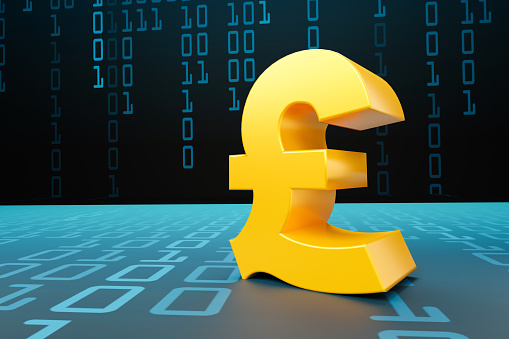Digital Zeitgeist – Britcoin Digital Pound Decision Due By 2025
The Bank of England and the Treasury are considering the implications of introducing a digital version of the pound.
According to proposals that are now being developed by the Bank of England and the Treasury, by the end of this decade, consumers may be able to use a new digital pound as an alternative to cash transactions.
Beginning on Tuesday, a public consultation process on a “Britcoin” will take place for a total of four months. This is part of the government’s accelerated effort to respond to the emergence of privately issued cryptocurrencies and stable coins.
Following the recent volatility of cryptocurrencies and the failure of the cryptocurrency exchange FTX, the Bank of England and the Treasury will work to reassure the public that a digital currency backed by the state would be just as secure as cash.
Members of the public are now being invited to give their views on the digital pound as part of research and development being done by the Bank.
A potential Britcoin would be issued by the Bank of England and not the private sector, unlike other cryptocurrencies such as Bitcoin.
Also unlike crypto the coin would have intrinsic value connected to the pound.
The Treasury said the needs of vulnerable people are being considered in the design process to ensure Britcoin would be simple to use, and both understood and trusted as a form of money.
Before making a final decision before the middle of the decade, the relevant authorities will investigate the technological challenges that are associated with the creation of a central bank digital currency.
The chancellor of the exchequer, Jeremy Hunt, and the governor of the Bank of England, Andrew Bailey, have both stated that the government might still decide against moving through with the plan, despite the fact that support for the proposal is growing. The research paper proposes that there will at some time in the future be a requirement for a digital version of the pound.
According to the Bank and the Treasury, the earliest date that customers might hold cash in digital wallets supplied to them by the private sector through smartphones or smartcards would be the end of the 2020’s. This, of course, is assuming that permission is granted to implement such a system.
Bailey said: “As the world around us and the way we pay for things becomes more digitalised, the case for a digital pound in the future continues to grow. A digital pound would provide a new way to pay, help businesses, maintain trust in money and better protect financial stability.
“However, there are a number of implications which our technical work will need to carefully consider. This consultation and the further work the Bank will now do will be the foundation for what would be a profound decision for the country on the way we use money.”
If implemented, the Bank of England would be responsible for issuing digital versions of the pound, which could then be used to make payments in-person or over the internet. It would be similar to the existing system of notes in that it would be printed in different denominations of pounds sterling and would be convertible with cash as well as bank deposits. There would be no interest accrued on pound balances kept in digital form.
The Bank and the Treasury say a digital pound would be subject to rigorous standards of privacy and data protection. “Like current digital payments and bank accounts, the digital pound would not be anonymous because the ability to identify and verify users is necessary to prevent financial crime,” they said. “This is essential for trust and confidence in money and therefore wide use of the digital pound.”
Although other major central banks, such as the European Central Bank (ECB) and the Federal Reserve in the United States are investigating the potential of launching their own official digital currencies, the plans being developed in the United Kingdom are further along and more advanced.
As the usage of cash continues to decline, the Bank of England and the Treasury feel that the introduction of private digital currencies poses a threat to the stability of the monetary system. They also believe that a trustworthy and effective official option will be required in the near future. Recent technological developments have made it feasible for a variety of cryptocurrencies to be introduced into circulation; however, the Bank of England and the Treasury have said that a digital pound would differ from other cryptocurrencies in that it would be supported and backed by the government.
Hunt said: “While cash is here to stay, a digital pound issued and backed by the Bank of England could be a new way to pay that’s trusted, accessible and easy to use.
“That’s why we want to investigate what is possible first, while always making sure we protect financial stability.” The decision will largely be based on future developments in money and payments, the Treasury said.
online sources: theguardian.com, bankofengland.co.uk, gov.uk

